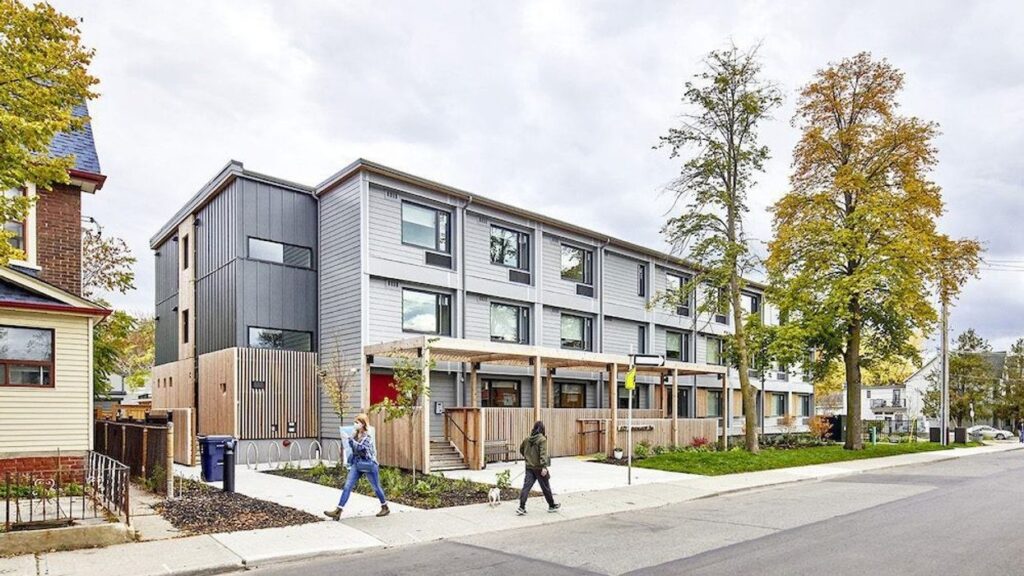
Thermal performance of modular homes: Exploring efficiency
The thermal performance of modular homes is a subject that has garnered significant attention among those interested in sustainable living and modern construction methods. Understanding how these homes maintain temperature and energy efficiency can help homeowners make informed decisions. This article delves into the factors affecting the thermal performance of modular homes and why they are becoming increasingly popular.

What Are Modular Homes?
Modular homes are prefabricated structures that are constructed in sectionsor moduleswithin a factory setting. These modules are then transported to the site and assembled. This method allows for more control over the quality and energy efficiency of the build.
The Construction Process
The construction process of modular homes involves precision and meticulous planning. Each module is built under strict factory controls, ensuring that the final assembly is seamless and efficient. This controlled environment also allows for the integration of advanced insulation materials that enhance thermal performance.
Factors Affecting Thermal Performance
Several factors contribute to the thermal performance of modular homes. These include insulation quality, window placement, and construction materials. By optimizing these elements, modular homes can achieve superior energy efficiency compared to traditional homes.
Insulation Quality
One of the most critical aspects of thermal performance is the quality of insulation. In modular homes, high-quality insulation is often used in walls, floors, and ceilings to minimize heat loss and maintain a comfortable indoor temperature.
Window Placement
Strategic window placement can significantly impact the energy efficiency of a home. In modular homes, windows are often placed to maximize natural light while minimizing heat loss, which contributes to better thermal performance.
Energy Efficiency and Sustainability
Modular homes are not only thermally efficient but also sustainable. The use of eco-friendly materials and energy-efficient designs aligns with the growing demand for sustainable living solutions.
Environmental Benefits
The construction of modular homes generates less waste compared to traditional building methods. The precision manufacturing process ensures that materials are used efficiently, reducing the overall environmental impact.
Cost-Effectiveness
While the initial cost of a modular home might be similar to a traditional home, the energy savings over time can make them more cost-effective. Lower energy bills and reduced maintenance costs contribute to the long-term affordability of modular homes.
Technological Innovations
Technological advancements have further enhanced the thermal performance of modular homes. The integration of smart home technologies allows homeowners to monitor and manage energy use more effectively.
Smart Thermostats
Smart thermostats can optimize heating and cooling systems, ensuring that energy is used efficiently. These technologies can significantly improve the comfort and energy efficiency of modular homes.
Advanced Insulation Materials
Innovations in insulation materials have led to better thermal performance in modular homes. Materials such as spray foam and rigid foam panels provide superior insulation, reducing energy consumption.
Comparing Modular Homes to Traditional Homes
When comparing the thermal performance of modular homes to that of traditional homes, modular homes often come out on top. Their superior insulation, precision construction, and energy-efficient features make them a compelling choice for those looking to reduce their carbon footprint.
The Future of Modular Homes
The future of housing is leaning towards modular construction. With the growing emphasis on sustainability and energy efficiency, modular homes are poised to become a standard in the housing industry.
Conclusion
The thermal performance of modular homes is a testament to the advancements in modern construction techniques. These homes offer a sustainable, energy-efficient option for homeowners looking to embrace a greener lifestyle.
For more insights into modular homes and their growing popularity, visit Futures Platform.

FAQs
Are modular homes more energy-efficient than traditional homes?
Yes, modular homes often have better insulation and energy-efficient designs that make them more energy-efficient than traditional homes.
What materials are used to improve thermal performance in modular homes?
Materials such as high-quality insulation, advanced windows, and sustainable building materials are used to improve thermal performance.
Can modular homes be customized to improve thermal performance?
Yes, modular homes can be customized with various features such as smart home technologies and advanced insulation to enhance thermal performance.
For more detailed discussions on modular homes and their benefits, check out our articles on Cultural Perceptions, Minimalist Lifestyles, and Technology and Design.
This article contains affiliate links. We may earn a commission at no extra cost to you.